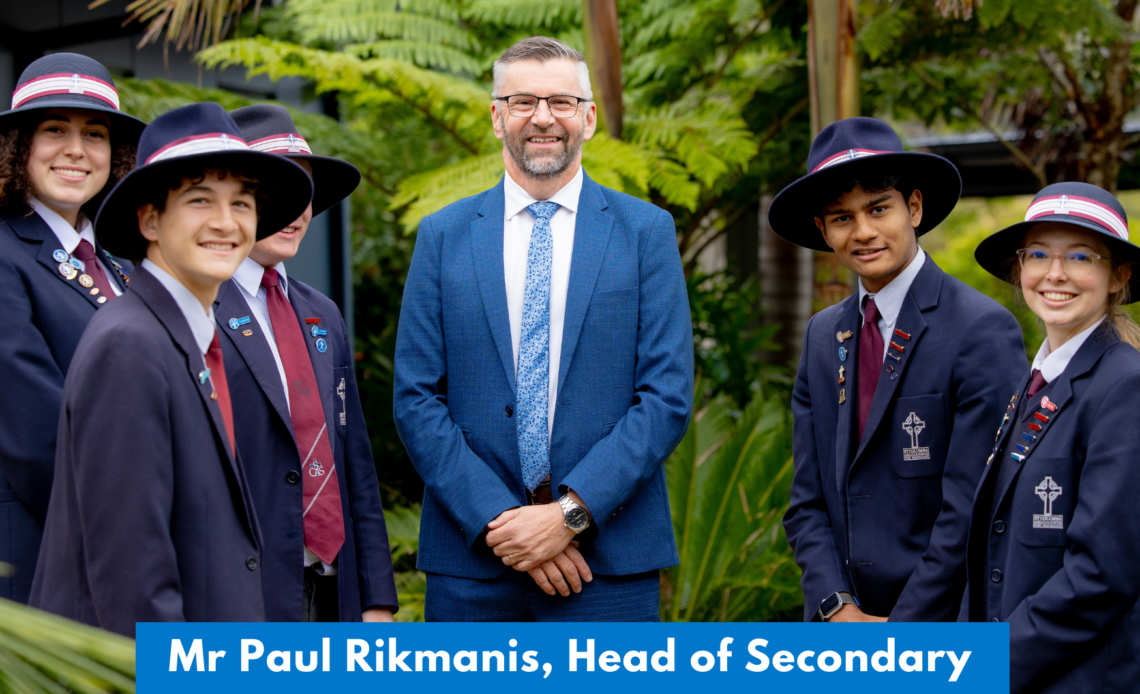
We are proud to foster a culture of continuous learning here at St Columba, where every member, from students to staff, play a role as a lifelong learner. While it’s evident that our students are on a constant learning journey, it’s equally essential to recognise that learning doesn’t conclude when our students graduate.
This week I have joined with a small team to engage in professional learning through the University of Melbourne’s New Metrics project. This groundbreaking initiative is reshaping the education landscape, shifting the focus from asking “how good are our students” to “what are our students good at.” The project aims to move away from relying solely on a numerical ATAR result and instead develop a new credential or certificate that identifies the complex competencies, the 6Cs, that our students possess as their strengths. We have heard this week from universities of the benefits of this work in preparing our students for their future journey and also the potential it offers for matching students to post-school destinations including university entrance.
However, we also heard about how this work is crucial for our students’ wellbeing and mental health. We were confronted by the statistics that show the high levels of anxiety and mental health disorders amongst our young people. Almost one half of female 16- 24 year olds, and one third of their male counterparts, experience such a disorder. We were reminded that now is the time where we need to be teaching social and personal capabilities.
This resonated with the work of Dr Jean Clinton, who spoke to both parents and staff at our professional development days in June. Creating an environment where students feel safe, supported, and a sense of belonging, is crucial for effective learning. This week our staff spent a period of professional learning time exploring a new wellbeing platform designed to equip students with the tools needed to foster preventative mental health skills. This initiative aligns with our Deep Learning culture, where student wellbeing is recognised as an essential part of classroom learning and we look forward to sharing more about this with our parents in the future.
These examples underscore the dynamic nature of our roles as learners. Navigating the challenges and complexities of schooling, and preparing our teenagers for their futures, demands ongoing learning and adaptation. As a learning community, we can provide a rich and varied program that consistently strives for the best outcomes for all students.
I extend an invitation to parents to join us on this learning journey, and I want to express my gratitude for the trust you place in us as educators for your children.

